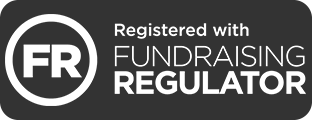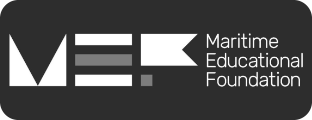Coming Ashore Podcast - Episode 12
Posted on 16 February 2021 by Tom Saunders
On Episode 12 of the Coming Ashore podcast, Karen Waltham is joined by Coming Ashore mentor Sankeet Mahajan.
Would you rather listen? Listen on Spotify and ITunes. Or watch on Youtube.
Click here to find out more about the Coming Ashore programme. Where you'll find professional guidance, mentorship and work experience opportunities for transitioning to a career on land.
Karen Waltham:
Hi, and welcome to the Marine Society Coming Ashore program podcast, where today I'm talking to Sanket Mahajan. So, good morning, hi.
Sanket Mahajan:
Hi Karen, thank you for having me on this podcast.
Karen Waltham:
That's a pleasure. Firstly, thank you very much indeed for your time today. And secondly, thank you for signing up to be a mentor, and part of the Marine Society, as a mentor for the Coming Ashore program. So, your time for that and for today is really appreciated so, thank you again.
What I want to do, is do a short podcast, talking about your background, and talking about a couple of other things that help others to understand the program a little bit more. But can I just ask you to start by giving us, just a brief background to your career? Just some highlights.
Sanket Mahajan:
Yeah. So, I started my sailing career with Severn and stayed with them for about 10 years. I stayed on the right two Lloyd tankers, LNG vessels. I sailed with them for 10 years before moving ashore.
So, I came ashore in the year 2019. I came as a training superintendent. So, I got that opportunity to have the transition from a sea career to shore career, and that was a very challenging part of my career. So, I took that... I took that change in 2019. And since then I'm working as a training superintendent with my company in Mumbai, India.
Karen Waltham:
That's lovely. And what made you actually, what actually created your decision to actually come ashore? What was the thing that... What was the spark for you that actually made you want to make that move?
Sanket Mahajan:
Actually, when I was on board, my last person to be very honest, I was not... I did not know at that time whether that thing could be my last special or not, because again, things happened quite fast. I got the support from Trinity and I gave it a very thorough thought, if I should take it or not.
And again, I spoke to a few people and the advice that they gave me that was, anytime that you're going to get from a ship to the shore, it is absolutely going to be one of the biggest decisions of your life. So, might as well give it a thorough thought before proceeding further.
So, I thought about it, and again, as you progress, when you're on board, there is a lot of progress ashore as well. Not many people are aware of this, but I did some research, I did some reading and, after going through the pros and cons, I took that decision of coming ashore. That was my story of shifting ashore.
Karen Waltham:
Yeah. A lot of people feel, or I certainly get a sense, a lot of people feel they want to keep going up that ladder. And this pressure perhaps from others or what they see around, or maybe they even think about it as they start their sea life, that they want to get to a certain point in the ladder.
And it must be quite difficult to make that decision to shift your thinking in terms of you thought you'd go further, but you came out at a certain point. Is that something you saw others going through as well?
Sanket Mahajan:
Absolutely. As you said, this is one of the biggest decisions, so, it's not just about change of your career, it's a complete change of your lifestyle because then you're on board and when you're onboard, you're doing completely different work than what you're doing.
Shore jobs are pretty much sometimes a desk job as well. So, what you're doing at sea, and what you're doing in the office, are two complete different things. So, a change of work is one thing, but change of lifestyle, you're used to traveling in your car, your traveling plans... You get to spend more time with your family, different in your salaries and time goes on.
There's so many things that you need to consider when you step ashore, so you need to, you need to be very sure as to why you are going to take that difficult decision.
Karen Waltham:
Yeah. And it is very personal, isn't it? It's very, very individual. You can't tell people that it's going to be there. So, as you say, yours was right. So, tell us a little bit more about your experience and how you moved? You said you had an opportunity that was offered to you or an opportunity that arose. How did you go through that process? How did you prepare yourself for that move? Because it must be, as you say, it's a big move.
Sanket Mahajan:
Yeah. So, as I said, when I got this... I saw the advertisement, I was still on board, my last ship. So, I was meeting all the criteria that were required for that particular position. So, I just thought about giving it a try. So, I just applied through the portal. And luckily for me, I got selected.
I was selected for the interview process, so, once I signed up for my last ship, I did some research about the company to pay for the interview and all those things, and had a go at the interview and luckily it went well, they liked my profile, they liked my background. They were quite happy with the way I was looking at my career in the future. And they offered me this a full-time position ashore as a painting superintendent. And that is how I did my career, applied when I was on board. And that's how I did it.
Karen Waltham:
Perfect. And in terms of challenges, what have you seen as the challenges and best parts as well about that move?
Sanket Mahajan:
As you said, there are positives and there are challenges as well as associated with any major decision. The major challenges that I would say are basically... It's just about getting adapted to the new way of life because, when you are working, you are used to doing the three month contract and then two months off vacation, and then back to sea, and this goes on and on.
Obviously, one of the biggest challenges is adapting to a nine to five routine, and you're stepping in front of the computer, talking on the phone and all those things. Adapting to the complete new lifestyle is one of the important challenges that we'll face.
Sanket Mahajan:
But on the other side, on the positive side as you said, you get to spend a lot of time with your family, you get to come home every evening and that is something you definitely miss when you're at sea. So, as I said, there is a plus and you need to seek a balance.
Karen Waltham:
Yeah. We hear lots about that kind of thing in terms of, whether people can prepare for that, are they ready for it and the shock that it can be. Because it can be a shock to the system really.
Sanket Mahajan:
Yeah. It can be, I mean, if you're not very sure if you just trying it for an experience, if it doesn't work out well, then you're back to square one. So, as I said, it has to be an informed decision. It has to be properly thought on.
Karen Waltham:
Yeah, which is what you obviously did, so that's great. So, when it comes to the mentoring, one of the things that we've obviously looked at, not everybody who I mentioned have necessarily gone, to a sea based or a shore based role, you have.
So, in terms of signing up to be a mentor, what is it that you were hoping or are hoping for with the mentees that are allocated to you, what are you hoping to impart to them? What are you hoping to give?
Sanket Mahajan:
Yeah, the main motivation that brought me here was, obviously, when I was doing my foundation from sea level to shore level, I did not have any mentor, I did not have any kind of the guidance that I would have wanted.
So, I did everything on my own, I could use all the resources that I could, but again, when I came to know about this program, I really thought that it would be one of the most important tools that as a mentor, you can guide someone, you can help them out in making that decision. Because again, as I said, I did not have someone guiding me when I was doing my transition.
So, this is a very good opportunity to give back to the society, to give back to the industry and whatever things I've got over the years, I think this is a very good platform that I can help potential candidates looking for a change.
Karen Waltham:
Yeah. I think you used the phrase earlier on, in terms that you were able to make an informed decision. When you've made that choice, you made an informed decision, which you managed to do yourself.
A lot of people do struggle that they haven't got the information they need. And it isn't a question of you telling them what they need to do is it? It's about them being ready. But if they've managed to... If other mentees that are coming through, have the opportunity to talk to you about your experience, then hopefully that will help them make those decisions as you say.
Sanket Mahajan:
Yeah, It's about sharing your experiences, sharing your thoughts and again, at end of the day, it's their own decision whether they have to make this change or not, you are just there to guide them, to mentor them and provide them with all the expertise or all the knowledge and experience that you have so that they are in a better position to make that decision.
Karen Waltham:
Yeah, and I think that's absolutely right. So, just in terms of a final question for me, which is... for people who are listening and maybe thinking, should I sign up or not as a mentee, but also as a mentor as well. Have you got any golden nuggets that you think that anyone listening should perhaps keep in mind when they're doing their CG shore transition?
Sanket Mahajan:
Yeah. I think this program, what Marine Society is learning, is one of the best things that you can have for somebody who's looking to do that thing. So, absolutely, somebody who's looking for a guidance, somebody who's looking for help, I would definitely recommend them signing up for this program.
And again, until you're not actually looking for a team, there's so many opportunities out there, you might not be aware of many of them. So, again, just have a think with yourself as to why you want to change, are you looking for some family commitments, or you think that there's no further progress in your sea life or whatever that thing is.
But yeah, you need to be sure about why you want to take this decision and you need to find out there are so many opportunities out there in the market. So, you need to do some research about the available options, and again, we are here, we are there to help you and guide you to your foundation. And I think it's a very good platform, what the Coming Ashore program has offered.
Karen Waltham:
Oh, that's perfect. Well, thank you, Sanket, thank you so much for talking to me today. I've really enjoyed our conversation and I hope others will be inspired and encouraged to really get involved with the program and see about their journey and how they can also share their experiences that have commissional as well. So, thank you, I really appreciate your time. Thank you.
Sanket Mahajan:
Thank you very much Karen.





